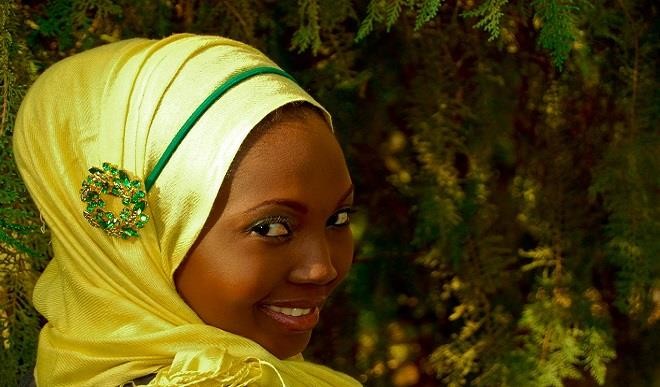Battle with Sickle Cell inspired my foundation – Samira Sanusi
What is the story behind your foundation? I was born with Sickle Cell Anaemia, and at the age of 15, I developed health complications due to Sickle Cell Disease (SCD) which sent me on a 7 year journey to fight for my health, life and the disease that was slowly destroying my body and life. […]


What is the story behind your foundation?
I was born with Sickle Cell Anaemia, and at the age of 15, I developed health complications due to Sickle Cell Disease (SCD) which sent me on a 7 year journey to fight for my health, life and the disease that was slowly destroying my body and life. In the middle of this darkness, is where I found – o rm of Bone Marrow Transplant which is known as a cure for the disease. My sister and I had a successful BMT and are now AA and healthier than we have been all our lives.
About the foundation:
My battle with Sickle Cell is what inspired me to start the Samira Sanusi Sickle Cell Foundation to help people living with the disease. The foundation raises funds for organisations and clinics that provide Sickle Cell patients with care, aid and treatment.
The foundation also organises awareness programmes in the country to educate and sensitise people on the disease.
SSSC Foundation is committed to supporting the Nigerian government in accelerating provision for management and treatment of Sickle Cell complications, as well as enlightening citizens about the disease, and most importantly, making informed decisions to avoid more Sickle Cell births.
How does a youth like you, cope with being a foundation’s president?
My experiences in life, living with Sickle Cell Anemia, the 28 surgeries I had to undergo and other health complications I overcame are circumstances that have aged me, forced me to grow and moulded me into the passionate, hardworking woman I am today. This has earned me the respect, and right to talk to people about the disease and bring up discussions that encourage and motivate individuals or organisations to support and be part of the change.
How do you manage funding issues of running the foundation?
My memoir, ‘S is for Survivor’ is the primary source of funding, where proceeds made from the book are donated to the foundation to provide warriors with medication.
To cope with f i n a n c i a l c h a l l e n g e s , we have to be creative and r e s o u r c e f u l in raising and generating funds.
We also partner with other organisations and medical centres who offer services to warriors at a subsidised rate.
What are some experiences that have left you bewildered on the job?
The most shocking ones have been speaking to parents of warriors who see caring for their children as a responsibility and burden.
Many people do not realise that for a child to have a genetic disorder like SCD, the parents must carry the genetic mutation that results in being born with the disease. Warriors face stigma and deal with lack of support, depression and other issues because the people who are supposed to support them the most are the ones blaming them for a life they did not bargain for.
How has writing ‘S is for Survivor’ affected your life?
It has been healing, there’s something reliving about telling a once painful and untold story. It’s a book that has given people fighting all kinds of battles strength and inspiration, and in turn reminds me that there’s a purpose for my pain and past.
What should we be expecting from you in the literary and charity work shortly?
My second book titled, ‘I wrote this for you’, will be released later this year.
It’s a collection of prose, short essays, poems and philosophical quotes about journeys through pain, hope, strength, self-discovery, healing and overcoming.
